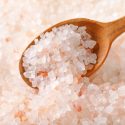Pinched Nerve Symptoms, Treatments and Natural Remedies
What is a Pinched Nerve?
When you develop pain, it can sometimes be difficult to determine the source.
A pinched nerve could be the cause, particularly if you are obese, perform repetitive motions frequently, are elderly, or have arthritis.
There are many traditional options for treating a pinched nerve, but there are also many effective, natural ways to treat pinched nerve pain without the adverse side effects of medications and surgery.
Our guide will help you learn how to prevent a pinched nerve, and treat pain caused by a pinched nerve if you develop this type of injury.
Occasionally, pinched nerves can heal on their own.
If left untreated, though, pinched nerves can also cause permanent disability and nerve damage.
It is crucial that you do not ignore pain, as it is your body’s way of telling you something is wrong.
Before you opt for invasive surgery or medications that have significant side effects, though, consider that more conservative, non-surgical treatments can be as effective at relieving pinched nerve pain.
Keep reading to learn more about all the most effective treatments that can help you if you have a pinched nerve.
Understanding Pinched Nerves
Your nerves are the information highways for your body.
They send vital information from your sense organs regarding perceived threats, pain, and your well-being to your brain.
They also conduct messages from your brain back to your body.
Your spinal column protects a large bundle of vital nerves that extend from your brain to your lower body.
Smaller nerves branch off from your spine to reach your extremities.
When a nerve is pinched, you experience pain, tingling, and swelling, all signaling a change in the areas surrounding the nerve, changing the way the nerve communicates with your brain.
Nerves become pinched or compressed when they are under more pressure than usual, which causes inflammation and irritation.
Injuries, inflammatory conditions, and other dysfunctions can cause tendons, muscles, cartilage, bones, and tissue to protrude, which places pressure on deep root nerves, resulting in pain.
Pain from a pinched nerve does not often stay localized.
Instead, it radiates to surrounding nerves, which perceive the pain as spreading down your legs, to other extremities, or up your back.
Several conditions can cause a pinched nerve, a few of which are serious problems that should be treated.
What Causes a Pinched Nerve?
There is no singular cause for a pinched nerve.
Because of this, prevention plays a vital role in treatment.
This condition can sometimes be difficult to diagnose, as pain can be caused by many factors, including injury or some type of disorder.
The most common culprit of pinched nerves is a previous injury, being overweight, and repetitive movements.
Other factors can contribute to the development of a pinched nerve, too.
Increased stress and pressure, otherwise known as compression, of a root nerve, causes pinched nerves.
This compression interferes with how the nerve communicates with your brain.
You are most likely to develop a pinched nerve in your lower back, neck, and hips.
The major causes of pinched nerves include (1, 2):
- Aging and the inflammation associated with aging;
- Irritation and wear caused by repetitive movements;
- Spinal disc problems, such as a herniated disc;
- Poor posture;
- Being obese;
- Narrowing of nerve tunnels from bone spurs;
- Neuropathy associated with the recovery of certain diseases like diabetes and breast cancer;
- Trauma, tears, and sprains from injury;
- Job- or hobby-related behaviors, including sitting or standing for long periods.
Spinal Disc Problems
Spinal disc problems go by many names, including slipped disc, herniated disc, bulging disc, and compressed or pinched nerve.
Because these conditions all create similar symptoms, it can be hard to tell a pinched nerve from a herniated disc, but doctors treat both conditions similarly.
Disc herniation can cause a pinched nerve because disc tissue protrudes and places pressure on nearby nerves.
Herniated discs can be caused by a number of factors, including aging, injury, diseases that affect the spine and nervous system, and degeneration of the spinal column.
When a spinal disc becomes herniated, it opens and expands, releasing fluid into surrounding tissue.
This causes increased pressure and inflammation.
Your doctor can help you determine the cause of your pain, whether from a pinched nerve or disc problem.
Understanding the reason for your pain will be critical to proper treatment.
An accurate diagnosis will help determine if a disc problem or nearby nerve are causing your pain.
You will want a precise understanding of the cause of your pain before agreeing to treatment, especially medications or surgery.
Symptoms of a Pinched Nerve
Pinched nerve pain can range from mild to severe, and can last for a short time or become chronic.
The nerve damage, irritation, and pain of a pinched nerve is likely to feel like shooting or tingling pains.
Left untreated, pinched nerve pain can lead to permanent nerve damage.
The most common sites for pinched nerve pain are the lower spine (lumbar), the middle (thoracic) spine, or the upper (cervical) spine.
Common symptoms of pinched nerves also include:
- Swelling;
- A feeling of added pressure in an area;
- Tenderness and pain;
- Increased pain during movement or exercise;
- Numbness or weakness;
- Pain that travels.
These symptoms are not likely to remain localized, but instead, radiate from one body part to another.
This is because pinched nerves are often root or deep nerves that connect to the larger nervous system (3).
The location of your pinched nerve will dictate your symptoms, in most cases.
For example, shoulders are a common area for pinched nerve pain, because several large root nerves run directly underneath your scapula or shoulder blade.
If you have a pinched nerve in your shoulder, you may experience pain, tingling, or numbness that travels from your shoulder or neck down to your back or arms.
You may experience increased pain or sensation in your fingers, wrists, hand, or elbow.
Your pain may worsen with movement, including typing or lifting objects.
Tingling, often referred to as pins and needles, weakness, and inflammation are all associated with pain in these nerves, which are responsible for carpal tunnel syndrome and tennis or golfer’s elbow.
You can also have weakness or stiffness in your hands, making it difficult to grip objects.
If your pinched nerve is in your back, though, your symptoms will likely vary.
Because your lower back bears the majority of the pressure and force from your body, it is common for pinched nerves to develop there.
Your pain may radiate down your back and into your legs.
Pinched nerves in this region can cause tingling, burning, or feelings of heat in the lower back, buttocks, and thighs.
Pain can even extend upward to the neck and chest.
You will likely experience increased pain upon waking while walking or bending and during exercise.
None of these symptoms sound very pleasant, which is why most people will seek the advice of a physician if they are experiencing them.
There are several conventional medical treatments used to treat pinched or compressed nerves.
Conventional Medicine Treatments
Proper diagnosis is essential to the treatment of a pinched nerve.
Your doctor will likely examine you to test your pain, tenderness, and reflexes, as well as get a thorough family medical history and assessment of your injuries.
Your doctor should check your pain levels during touch, pressure, and motion, as well as examine you for signs of weakness, twitching, and numbness.
Moving your limbs and torso will assess your joint function, as well.
Your doctor may also order diagnostic tests, such as a magnetic resonance imaging (MRI) scan or a CT scan.
These can help locate any disc alignment or configuration problems you may have.
Your doctor may also want to perform electromyography or EMG.
This nerve conduction study assesses the health of muscle tissue and nerve cells.
It can be helpful in determining the location and extent of damage from a pinched nerve.
After diagnosis, your doctor may suggest one of the following conventional medical treatments that are commonly used to treat the pain associated with pinched nerves.
Pain Relievers
Usually, your doctor will recommend the use of non-steroidal anti-inflammatory drugs (NSAIDs) to treat pinched nerve pain.
NSAIDs include ibuprofen, naproxen, and aspirin.
Stronger narcotics are sometimes prescribed for chronic nerve pain.
These medications are all effective at decreasing the pain associated with a pinched nerve, but they will not treat the source of the problem.
These medications, even those available over the counter, can have adverse side effects, and long-term use of narcotics is not recommended.
Corticosteroids
Used to lower the inflammation and swelling of a pinched nerve, corticosteroids, like NSAIDs, can relieve the symptoms but generally not the cause of the pinched nerve.
Surgery
If your pinched nerve is caused by a bulging disc or other bone protrusion, surgery may be needed to remove the material that is pinching the nerve (4).
Surgery can successfully remove scar tissue and other material causing nerve pain, but can be risky, and may not entirely alleviate your symptoms.
Other traditional medical treatments include giving steroid injections at the site to reduce inflammation, using physical therapy to strengthen and stretch surrounding muscles, and wearing a splint or soft color to limit the range of motion while an area heals.
Pinched Nerve Natural Remedies
If you have a pinched nerve and want to treat it naturally, there are many options available.
The following are ways to improve your overall health, decrease your pain from a pinched nerve, and prevent pinched nerves from developing.
Eat Properly for Tissue Repair
Collagen is a type of protein found in abundance in the body.
It is an essential building block of all tissue and comprises the cushion-like tissue between bones and inside joints that reduces pressure and friction.
Eating more collagen and a diet that promotes natural collagen development can provide your body with this important nutrient, helping your body to repair damaged tissues.
Adding chondroitin, glucosamine, hyaluronic acid, amino acids, antioxidants, and omega-3 fatty acids to your diet also boosts repair, lowers inflammation, and enhances your immune system.
The following are foods that should play a role in a healthy, whole-food diet.
- Bone broth is high in collagen, along with other beneficial minerals and nutrients.
- Chia seeds, flaxseed, grass-fed beef, wild-caught oily fish like salmon, and other sources rich in omega-3s will help reduce inflammation, as well as slow the effects of aging on your body.
- Organic fruits and vegetables, garlic, ginger, and turmeric, which are rich in antioxidants and anti-inflammatory agents, can reduce the impact of oxidative stress on your cells, as well as supply necessary minerals and vitamins your body needs to heal and be healthy.
- High-fiber foods can help you control your weight, reduce your cravings, and supply required minerals, vitamins, and healing compounds. Because being overweight or obese can cause a pinched nerve, you want to reduce your chances by keeping your weight in check.
In addition to eating the above foods in abundance, you also want to limit your intake of sugary foods, highly-processed products, foods that are fried, refined carbohydrates, and sweetened drinks.
Avoiding these will help you maintain a healthy weight, as well as leave more room for calories from healthier sources.
Eating a nutritious diet is vital to all aspects of your health, including managing pain from conditions like a pinched nerve.
Work on Your Posture
If you want to eliminate stress and pressure on your joints, using proper posture is an excellent place to start.
Your posture is so important, and those with poor posture are likely to experience many problems, including pinched nerves.
Strengthening your core muscles will help you maintain proper posture by supporting you better and providing relief for your back muscles, which are under a lot of pressure to hold you up straight.
Exercising regularly to build up the muscles in your back and abdomen will help you create and maintain proper posture.
There are methods that teach you how to improve your posture.
One is called Egoscue postural therapy.
It is a great way to retrain your body how to hold itself correctly, correcting musculoskeletal alignment problems.
Correcting your posture using this or other postural therapy techniques will improve your pain, eliminate pressure points, and help you prevent future problems.
Consider Taking Supplements
Getting the proper nutrition is the key to helping your body repair and heal itself.
If your diet is deficient in specific nutrients, you will have difficulty recovering from conditions such as a pinched nerve.
Taking quality supplements can be an excellent way to get the proper nutrition you need, while you work to improve your overall diet.
Also, if you have food allergies, sensitivities, or strong food preferences, using supplements may be necessary to get specific nutrients if your dietary sources thereof have been eliminated.
Supplements rich in antioxidants and anti-inflammatories will be very helpful, as will collagen and other nutrients.
These supplements can all be helpful in treating the symptoms of a pinched nerve:
- Omega-3 fatty acids;
- Bromelain;
- Ginger;
- Curcumin, found in turmeric;
- Bovine collagen;
- Chondroitin;
- Glucosamine;
- Acai;
- Resveratrol;
- Goji.
Stand While You Work
If you have a pinched nerve or a condition that makes you prone to developing one, you may consider a standing workstation.
Standing while working, such as at a computer, can enhance your mobility and alleviate the stress and pressure that can cause pinched nerve pain.
Modifying your position so that you are standing for more extended periods instead of sitting has other health benefits, too, but this method can be quite useful for those living with the pain of a pinched nerve due to a herniated disc or other back problem.
Regardless of if you are standing or sitting, remember to stretch regularly and walk around periodically throughout your work day to prevent tight muscles and improve your posture.
If you use a keyboard, remember to stretch wrists, hands, and arms to avoid carpal tunnel syndrome, too.
Use Heat or Cold
Depending on the location, heat, cold, or both may be helpful in alleviating the pain and inflammation of a pinched nerve.
You may have to experiment to see which is more useful. Applying heat can relax muscles that may be impeding on a nerve.
If you have an injury, heat can also promote healing by increasing blood flow.
Apply heat for 15-20 minutes at a time, several times a day.
Ice or cold packs can reduce inflammation and swelling.
Depending on your injury or source of pain, cold may be more effective at relieving your pinched nerve pain.
Apply cold for 15-20 minutes every few hours. Or combination therapy may work best for you.
Alternating the application of heat and ice can promote healing and relieve pain for some people.
Apply heat for 10-15 minutes, then wait two hours to apply cold for the same interval. Repeat as needed.
Acupressure and Soft Tissue Therapy
Selectively targeting trigger points and tight muscles can help alleviate stress and pain, and specific therapies can even help retrain your muscles to work properly.
Acupressure is a technique that applies pressure to tense muscles, which relaxes them and alleviates pain.
You can use tennis balls and roller balls to help you reach acupressure points and relieve your pain at home.
Soft tissue therapy may feel more like acupressure but also has a lot in common with chiropractic care.
You will need to seek the help of a professional trained in this approach.
Your therapist will manipulate your muscles to activate weakened muscles, turning them “on,” which can reduce stress and pain.
These active release techniques are helpful for those with injuries.
Some favorite soft tissue techniques are dry needling, the Graston technique, and neurokinetic therapy.
Where Pinched Nerves Commonly Develop
Root nerves are present in three main areas of your body.
If you have a pinched nerve, it is likely affecting one or more of these areas.
- Cervical
Your cervical spine is the top of your spinal column, comprising your neck and head.
Pinched nerves located in the cervical spine region can radiate pain down the upper back, chest, shoulders, and arm.
Most pinched nerves in the cervical spine result from degenerative disc disease, a herniated or bulging disc, stenosis, or osteoarthritis (5).
- Thoracic
Your middle or thoracic spine is the least movable and most inflexible of your vertebrae, so this area is the least likely to develop a pinched nerve.
Your middle spine is fused to your rib cage, which provides even more support and stability, so your thoracic spine is well-protected from stress and pressure.
- Lumbar
Your lower spine is comprised of five large vertebrae, known as your lumbar.
This area sustains significant pressure and stress from movement and sitting, so this is the most common site for pinched nerves.
Protecting your lumbar region is vital for overall spinal health and flexibility.
Sciatica, a Type of Pinched Nerve
If you have pain that radiates down your leg or legs from your lower back, this is generally called sciatica.
This type of pinched nerve pain is most commonly caused by a herniated disc in the lumbar region.
Those with sciatica often report stabbing pains or muscle cramps that can last as long as several hours.
It also induces stiffness, tenderness, and throbbing pain in the lumbar area and legs.
Helpful treatments for sciatica include seeing a chiropractor, doing yoga, stretching, doing regular exercise, and getting a massage or acupuncture.
Precautions
While treating nerve pain is essential to preventing long-term damage, some may never experience total relief from this disorder.
See your doctor if your pain lasts longer than a few weeks, or does not respond to over-the-counter pain relievers.
If resting does not begin to alleviate your symptoms, you may have a more significant problem.
If your nerve pain is accompanied by chills, fever, or nausea, seek medical help.
You may have a more serious problem that requires medical attention.
If you have a pinched nerve, stopping activity, at least temporarily, will often help your body to heal the inflammation causing it.
Talk with your doctor about prolonged inactivity, though, as this may do more harm than good.
Treating a pinched nerve naturally, through attention to diet and exercise as well as through treatments such as supplements, acupressure, and postural therapy, can also help to alleviate symptoms, as well as prevent future problems with pinched nerves.
FDA Compliance
The information on this website has not been evaluated by the Food & Drug Administration or any other medical body. We do not aim to diagnose, treat, cure or prevent any illness or disease. Information is shared for educational purposes only. You must consult your doctor before acting on any content on this website, especially if you are pregnant, nursing, taking medication, or have a medical condition.
HOW WOULD YOU RATE THIS ARTICLE?






